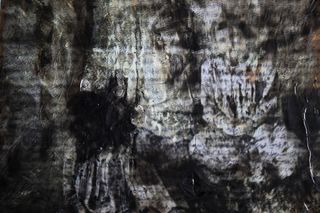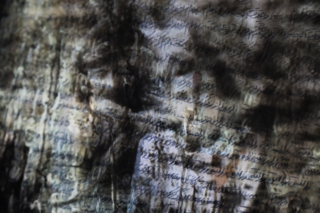
LEILA KEIVAN HOSSEIN
Fakultät Kunst & Gestaltung
Betreut an der Professur für Arts and Research
THEMA: IN MEMORY OF GRAVELESS LOVERS - a study on roll of denied disaster in oppressive regimes and their effect on intergenerational traumas in future
Bauhaus-Startstipendium für den Einstieg in die Promotion

Why are you researching at the Bauhaus-Universität Weimar?
Bauhaus-Universität Weimar offers a uniquely interdisciplinary and experimental approach to art and design, fostering an environment where oundaries between disciplines dissolve, making itideal for my research. The university's emphasis on innovation in public engagement and ist strong support for artistic exploration align perfectly with my practice, which focuses on transforming archives into living, interactive experiences that connect people to forgotten histories and denied traumas. Having previously completed the "Public Art and New Artistic strategies" program here, I am already deeply engaged with the university's creative community. This familiarity allows me to effectively collaborate with the university’s resources and faculty, especially within the Faculty of Art and Design, which is a vital space for Artists pursuing socially engaged research.
What is special about your project?
My project, In Memory of Graveless Lovers: A Study on the Role of Denied Disasters in Oppressive Regimes and Their Effect on Intergenerational Traumas in the Future, is distinctive in its combination of archival art, natural materials, and interdisciplinary research on trauma. By exploring the dynamics of denied disasters under oppressive regimes, my project treats trauma as an active archive, one that grows and changes with each new generation. The use of alternative print methods involving natural elements—such as soil, water, and sunlight—to recreate archival Images is an innovative approach that emphasizes the role of nature as a witness to suppressed truths. This methodology transforms nature itself into an archival medium, creating a powerful, immersive representation of memory that is accessible yet challenging. My goal is not only to document These denied events but to highlight the resilience and memory held within natural elements, creating a dialogue about the resilience of truth in the face of oppression.
Why is it relevant?
This research is relevant as it addresses pressing global issues of trauma and denial under authoritarian regimes, an area that remains crucial for understanding and addressing generational cycles of suffering. By investigating the impacts of denied disasters and suppressed traumas, my project provides insights into how these unacknowledged histories shape individuals and communities across generations. It has contemporary relevance in a world where erasure and denial are increasingly used as tools of control. Moreover, the project’s interdisciplinary nature fosters critical discussions that intersect art, history, psychology, and environmental studies, making it valuable to a diverse audience. By bringing these difficult conversations into public view, the project not only contributes to the field of artistic research but also invites society to confront and process these hidden narratives, fostering awareness, empathy, and, ultimately, healing.


>>> ZURÜCK zur Galerie
